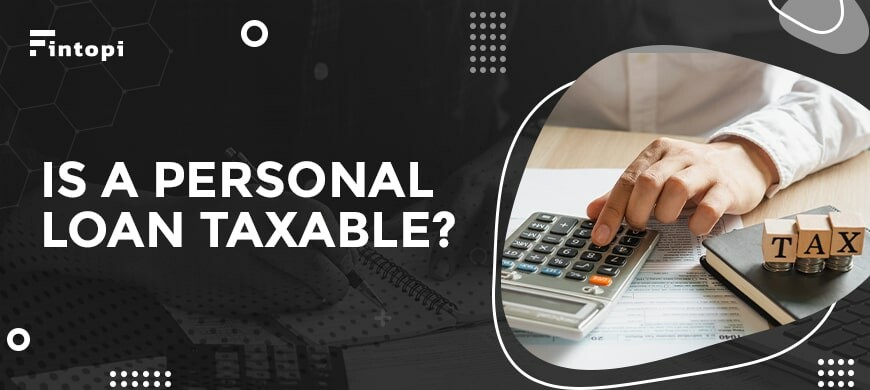Is a Personal Loan Taxable and Can It Be Considered Income?
Personal loans are becoming increasingly popular, but there is still some confusion about whether or not they are taxable and considered income. In this article, we will explore the ins and outs of personal loans and how they are taxed.
There are a lot of misconceptions out there about personal loans and taxes. The truth is, whether or not a personal loan is taxable and considered income depends on the specific details of your loan.
For starters, personal loans are not automatically taxable. The IRS does not consider personal loans to be income unless you use the loan for business purposes. So, if you take out a personal loan and use it for something like home improvements or similar things you will not have to pay taxes on the loan amount.
But they can be considered income if they are used for business purposes. If you use a personal loan for business purposes, then the IRS will consider the loan amount to be taxable income. This means that you will need to report the loan amount as income on your tax return. Be sure to keep good records of how you use the loan funds so that you can properly report the income on your taxes.
You may also be able to deduct interest paid on a personal loan from your taxes. In case you use a personal loan for business purposes and pay interest on the loan, you may be able to deduct the interest paid from your taxes. This deduction can help offset some of the tax liability associated with using a personal loan for business purposes. To see if you qualify you need to consult with a tax professional.
When Are Personal Loans Considered Taxable Income?
So, when does a personal loan count as income?
There are a few instances when personal loans are considered taxable income. When you receive a personal loan that is forgiven, such as through debt settlement, then the amount forgiven is considered taxable income. If you restructure your debt and include a personal loan in the restructuring, any interest savings may be considered taxable income.
In case you use a personal loan to purchase an investment, such as a rental property, any profits you make from the investment may be considered taxable income. Personal loans are also sometimes used to consolidate other debts. In this case, any interest savings may be considered taxable income.
But is a personal loan from a family member or a friend taxable?
Loans from family members or friends are not taxable. Whether the loan is with or without interest, it becomes tax-free for the borrower. That being said if the lender charges interest from the borrower, he or she has to pay taxes on any interest that is earned from the loan.
If you are interested in more tax deduction options that your loan might offer, contact your lender so you can get a better insight into what you can do.
Is It Possible To Deduct Interest Paid?
You know when personal loans are taxable but is it possible to deduct the interest paid?
When it comes to personal loans, the interest you pay is generally not deductible. That being said, there may be a few exceptions. For instance, if you use the loan for business purposes or investment purposes, you may be able to deduct the interest paid.
Additionally, if you are subject to the Alternative Minimum Tax also called AMT, then you may be able to deduct interest paid on certain kinds of personal loans. Just make sure to fully understand your terms and conditions before signing the loan, so you know what to expect.
There are also other situations where there is a possibility to deduct the interest rate you paid but if you want to know more about it, contact your lender. This is because it differs from loan to loan since not all of them are the same.
What Happens If You Refuse to Pay Your Personal Loan?
What happens if you refuse to pay your personal loan and how big of trouble can you get into?
If you refuse to pay your personal loan, the lender may take legal action against you. This could include filing a lawsuit, which could result in a judgment being entered against you.
In case the judgment is for a substantial amount, the lender may try to collect it by garnishing your wages or freezing your bank account. On top of that not paying can lead to jail time and that is something that you do not want.
On the other hand, in some cases, the lender may also report your delinquency to the credit bureaus, which could damage your credit score. And if you are still struggling to make payments, the lender may eventually sell your debt to a collection agency, which will add additional fees and interest.
That’s why it’s very crucial to be diligent with your payments and never miss one, since you can end up in court or even worse, jail. If by any means, you are struggling financially, make sure to inform your lender about it.
Bottom Line
As we said, personal loans are not taxable and are not considered income. This is because personal loans are not considered to be financial instruments under the Internal Revenue Code. However, they can and do become taxable if they are used for business purposes.
Also when you receive a personal loan that is forgiven, such as through debt settlement, then the amount forgiven is considered taxable income. So, only when used in certain ways, they do become taxable. But all in all personal loans are generally not considered taxable.



